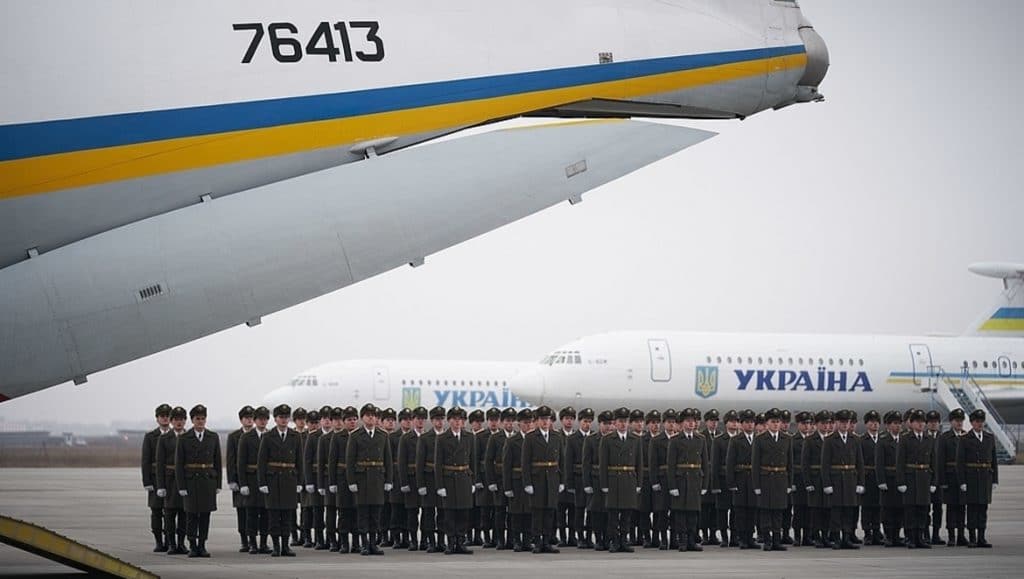
Canada hopes to introduce new protocols and safeguards to air incident investigations, following its long-standing criticism against Iran’s investigation of the Ukrainian airliner downed by Iranian forces in January 2020.
Ukraine International Airlines flight PS752 was shot down on 8 January 2020 by Iran’s Revolutionary Guards shortly after take-off over Tehran, in an incident labelled by Iranian authorities as a “disastrous mistake” amid heightened tensions between Iran and the US.
All 176 people onboard the aircraft were ultimately killed in the incident, many of whom were Canadian.
Canada’s Transportation Safety Board said on Thursday it intends to involve the United Nations in its call to change global standards governing air accident investigations, in light of the final report into Iran’s downing of the passenger plane.
The Canadian safety investigation agency said it will begin discussions with the UN aviation branch, the International Civil Aviation Organisation (ICAO), within “the coming weeks and months”.
Canada is pushing for assured independence and more safeguards to be in place for instances where a state-run agency needs to investigate the actions of its own military, such as in the case of UIA flight PS752.
Iran’s civil aviation body released its final report on the investigation on Wednesday, which blamed a misaligned radar, as well as the personal error of an air defence operator, as the cause of the fatal event.
The Iranian final investigation report said: “The plane was identified as a hostile target due to a mistake by the air defence operator … near Tehran and two missiles were fired at it.”
While the TSB called the scenario a “plausible explanation for what happened”, it also argued that the final report appeared “incomplete” and lacked evidence.
Currently, ICAO’s standards to international air accident investigations are housed within ‘Annex 13’, which Canadian TSB chair Kathy Fox said clearly “has limitations”, as seen in “this most recent event and investigation”.
Under the rules stipulated in Annex 13, Iran retained overall control of the investigation into the incident with flight PS752, however, due to the implication of Iran’s military in the investigation, Fox said that Iran’s aviation authority’s involvement was compromised.
Fox said the PS752 investigation was “unprecedented”, and shows a need for Annex 13 to be altered.
“What we would like to see are changes to Annex 13 that would facilitate more transparency and independence in these unique cases where a state military has been involved in bringing down a civilian airliner,” Fox said.
Both Canadian and Ukrainian authorities have criticised Iran’s final report into the incident, and said that Iran’s final investigation report “makes no attempt to answer the critical questions about what truly happened”.
Ralph Goodale, an adviser to the Canadian prime minister, added that “there will be no solace for the families because the whole story, the complete story with the hard evidence to back it up is not being provided”.
Meanwhile, Ukraine’s Foreign Minister Dmytro Kuleba said, “What we saw in the published report today is nothing more than a cynical attempt to hide the true reasons for the downing of our plane.”
Ukraine has long suspected the crash was intentional, and stated the report was merely an attempt by the Islamic Republic authorities to cover up this fact.
Minister Kuleba also said Iran’s investigation did not follow international practice, ignored evidence supplied by Ukraine and drew selective conclusions.
Ukraine and an independent United Nations investigator previously raised questions about whether Iran’s downing of the airliner was intentional rather than accidental, and the UN last month said that Iran’s explanation for the incident contained inconsistencies.
Ukrainian prosecutors have reportedly launched their own independent investigation into the crash. Canada is also nearing the end of its own investigation.




